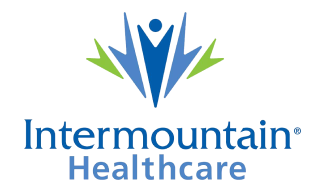Learn More
Fort Worth, Texas, United States
Eating Recovery Center Texas Christian University Campus
Claimed
Claimed
Claimed
About Eating Recovery Center Texas Christian University Campus
Located at Texas Christian University (TCU) in the Counseling and Mental Health Center, The Eating Recovery Center provides intensive outpatient (IOP) treatment for eating disorders to enrolled students. This 11-week program allows students to continue their coursework and participate in extracurricular activities while receiving care. Enrollment is open year-round.
This specialized program includes weekly therapy sessions with a therapist, customized dorm-friendly recipes, 3 group dinners with other students and staff, and optional family therapy sessions. The group dinners meet on Mondays, Tuesdays, and Thursdays from 5 to 8 p.m. to build connections with other students pursuing treatment.
The Eating Recovery Center seeks to understand the underlying social and psychological pressures (such as co-occurring mental health conditions) that contribute to an individual’s eating condition. Their TCU location is specially focused on identifying and treating pressures of academic life. They use these therapies for weekly discussions: Acceptance and Commitment Therapy (ACT), Cognitive Behavioral Therapy (CBT), Cognitive Processing Therapy (CPT), Dialectical Behavior Therapy (DBT), Emotion-Focused Family Therapy (EFFT), Exposure and Response Prevention (ERP), and Family-Based Treatment-Informed Care (FBT).
Additional Locations
The Eating Recovery Center’s other locations, including their nearby Dallas clinic, offer the same therapies for adults, children, and adolescents, plus additional therapies like the new radically open dialectical behavior therapy (RO-DBT), which focuses on helping individuals manage their emotions and reduce impulsive behaviors.
Read More
Insurance Accepted
Provider's Policy:We Are In-Network With Most Major Commercial Insurance Providers. We do not currently accept Medicaid or Medicare. To ensure you can pursue recovery, our dedicated team will work on your behalf by acting as a liaison with your insurance provider, answering your questions, and providing guidance and support every step of the way.

Center Overview
Young Adults
Emerging adults ages 18-25 receive treatment catered to the unique challenges of early adulthood, like college, risky behaviors, and vocational struggles.
Men and Women
Men and women attend treatment for addiction in a co-ed setting, going to therapy groups together to share experiences, struggles, and successes.


Care Options





Treatment
Specializations
Eating Disorders
An eating disorder is a long-term pattern of unhealthy behavior relating to food. Most people with eating disorders have a distorted self-image.
Learn More
Young Adults
Emerging adults ages 18-25 receive treatment catered to the unique challenges of early adulthood, like college, risky behaviors, and vocational struggles.
Learn More
Approaches
Evidence-Based
A combination of scientifically rooted therapies and treatments make up evidence-based care, defined by their measured and proven results.
Learn More
Individual Treatment
Individual care meets the needs of each patient, using personalized treatment to provide them the most relevant care and greatest chance of success.
Learn More
Personalized Treatment
The specific needs, histories, and conditions of individual patients receive personalized, highly relevant care throughout their recovery journey.
Learn More
Therapies
1-on-1 Counseling
Patient and therapist meet 1-on-1 to work through difficult emotions and behavioral challenges in a personal, private setting.
Learn More
Family Therapy
Family therapy addresses group dynamics within a family system, with a focus on improving communication and interrupting unhealthy relationship patterns.
Learn More
Nutrition Counseling
Nutritious food helps patients heal from within, setting them up for mental and bodily wellness as they learn about healthy eating.
Acceptance and Commitment Therapy (ACT)
This cognitive behavioral therapy teaches patients to accept challenging feelings and make the appropriate changes to reach personal goals.
Learn More
Conditions We Treat
Eating Disorders
An eating disorder is a long-term pattern of unhealthy behavior relating to food. Most people with eating disorders have a distorted self-image.
Learn More
Substances We Treat
Co-Occurring Disorders
A person with multiple mental health diagnoses, such as addiction and depression, has co-occurring disorders also called dual diagnosis.
Learn More
Aftercare
Experience
Special Considerations
Young Adults Program
Programs for young adults bring teens 18+ together to discuss age-specific challenges, vocational and educational progress, and successes in treatment.
Learn More
We love hearing about your treatment experience
Help individuals and families seeking treatment by sharing your first-hand experience with this treatment provider. Review Guidelines.

















